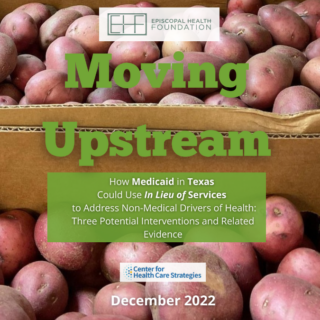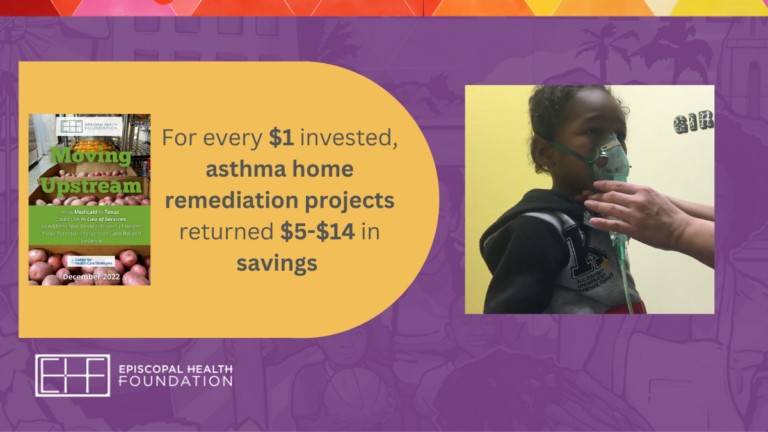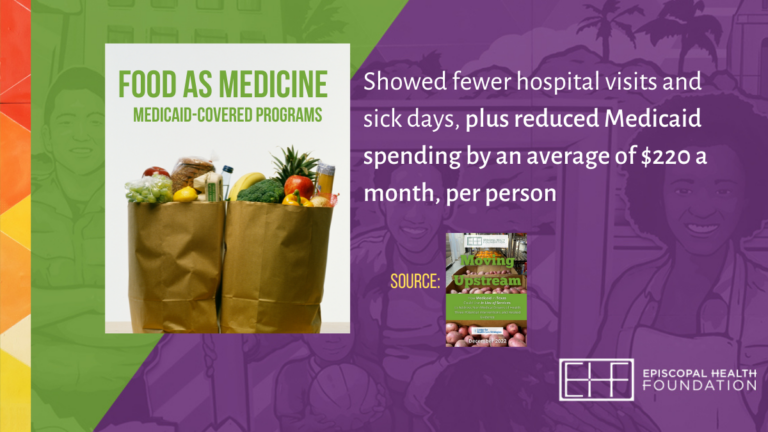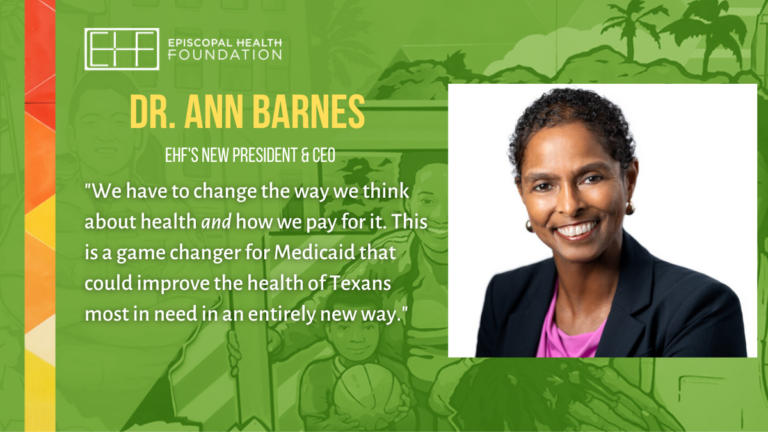Evidence from existing Medicaid programs across the country show that projects outside the doctor’s office that address non-medical drivers of health result in improved health outcomes for Medicaid enrollees and increased financial savings. Those are key findings from a new report from the Episcopal Health Foundation and the Center for Health Care Strategies that outlines how similar non-medical programs could be supported by Medicaid in Texas.
The report is part of the 2022 legislative recommendations from the Texas Value-Based Payment and Quality Improvement Advisory Committee that urge lawmakers to approve “upstream” Medicaid programs across the state.



